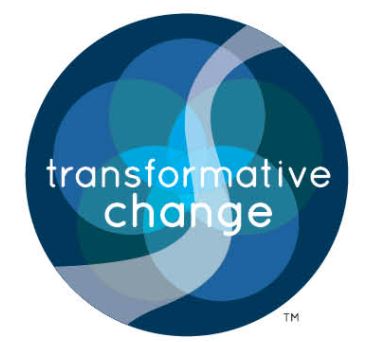An important goal of TCI is to assist community colleges to scale innovation, and we are committed to the use of guiding principles to implement and evaluate scaling. By using guiding principles, TCI provides direction for practitioners to scale without overwhelming them with prescription. Guiding principles represent the intentionality of the innovation in ways that allow for multiple actors and actions to take place and bring about change. The beauty of guiding principles is that they provide “guidance for action in the face of complexity”1 and as a result, adaptation can occur in ways that achieve the intended outcome in the local context. Guiding principles also reflect the underlying knowledge and beliefs that guide actions necessary to sustain change and grow impact.
TCI’s theory of change suggests scaling happens when practitioners act intentionally to set goals, implement changes, and measure intended outcomes. A cycle of learning and change is ignited for the betterment of students, stakeholders, and society. From this perspective, practitioners and other stakeholders reflect upon and share what they believe to be good practice, and these practices shape and re-shape the evolving local context. Contrary to some traditional views of scaling, this way of thinking is not so much about replicating what others assert is good practice but about engaging in and becoming an instrument of the scaling process itself.2
The seven guiding principles that frame the scaling of transformative change follow:
Guiding Principle 1: Transformative leaders implement, sustain, and scale transformative change that benefits all learners.
Guiding Principle 2: Adoption and adaptation are key to implementing, sustaining, and scaling innovations.
Guiding Principle 3: Through networks and professional development, practitioners gain access to expertise and resources that are vital to scaling innovation.
Guiding Principle 4: Practitioners tell their stories of how scaling change in policy and practice happens in the public context.
Guiding Principle 5: Technical assistance that utilizes technology to strengthen resources and expertise is critical to scaling transformative change.
Guiding Principle 6: Identifying and engaging users in dissemination that is sensitive to context is important to scaling transformative change.
Guiding Principle 7: Integrating implementation and evaluation enhances learning for the purposes of scaling innovations and growing impact.
This is the third post in a series about the Transformative Change Initiative (TCI) and is based on the 2014 TCI booklet.
Dr. Debra Bragg is the OCCRL director and a Gutgsell endowed professor at Illinois who researches transition to college by youth and adults, especially student populations that have not attended college historically.
1. Patton, M. (2011). Developmental evaluation: Applying complexity concepts to enhance innovation and use. New York, NY: The Guilford Press, p. 167.
2. Schorr, L. B. (2012, Fall). Broader evidence for bigger impact. Stanford Social Innovation Review, Fall 2012. Retrieved from http://www.ssireview.org/articles/entry/broader_evidence_for_bigger_impact.
